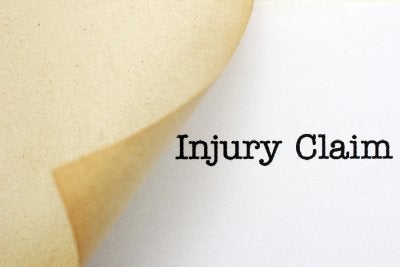-
Emotional Suffering Cases: Understanding Your Rights
If you were injured as a result of the negligent or reckless actions of another person, you may have the grounds for a personal injury lawsuit. Consider talking to a personal injury lawyer near Tracy or Manteca about your legal rights and options. Depending on the circumstances of your case, your personal injury lawyer might pursue compensation on your behalf for your actual losses and your pain and suffering, which may be referred to as your emotional injuries.

Examples of Emotional Injury Cases
Emotional distress can arise from many different types of personal injury cases. It may be an element in auto accident cases in which the victim has suffered mental anxiety along with physical injuries. Emotional damages can be associated with intentional torts, in which the defendant intentionally assaulted the victim. Emotional injuries may also arise from dog bite cases or slip and fall accidents.
Elements of Emotional Injuries
When determining whether to pursue compensation for emotional injuries, your personal injury lawyer will consider whether certain elements are present in your case. Under California case law, the defendant must be shown to have acted in an extreme manner that is outside of the scope of exercising reasonable care. The defendant must have acted in a way that showed reckless disregard for the victim’s safety or the defendant must have intentionally acted in this way. Additionally, the plaintiff must be shown to have suffered from severe emotional distress. The defendant’s actions must be a substantial factor in causing this extreme emotional distress.
Proof of Emotional Injuries
Emotional injuries are often difficult to prove, but there are ways that your injury lawyer can demonstrate your emotional distress. After an incident occurs, it’s important to keep careful track of all problems that stem from the incident. Perhaps your emotional distress was severe enough to cause you to miss work or even to get fired. Perhaps you had to work with a psychologist or other mental health counselor. Document the specific symptoms and other challenges you experience from day to day and describe the way in which these problems interfered with your daily life. Your account of your emotional distress should be supported by documents or testimony from your doctor or mental health professional.
-
What Is Proximate Cause in a Personal Injury Case?
 A personal injury case can involve complex issues, which is one reason why it’s advisable to choose a highly experienced personal injury lawyer with offices in Tracy or Livermore. Your personal injury lawyer must not only prove the actual cause of your injuries, but also the proximate cause or legal cause. Proximate cause is a key concept in holding a defendant liable for negligence . To better understand proximate cause, it may be easier for your personal injury lawyer to explain what proximate cause does not entail.
A personal injury case can involve complex issues, which is one reason why it’s advisable to choose a highly experienced personal injury lawyer with offices in Tracy or Livermore. Your personal injury lawyer must not only prove the actual cause of your injuries, but also the proximate cause or legal cause. Proximate cause is a key concept in holding a defendant liable for negligence . To better understand proximate cause, it may be easier for your personal injury lawyer to explain what proximate cause does not entail.For example, if you drive through an intersection and a car nearly hits you, you may be understandably upset. As you continue driving, your distressed emotional state may prompt you to hit a parked car and sustain injuries. In this instance, the negligent driver may have remotely influenced your accident, but his or her actions do not constitute a proximate cause. To prove that proximate cause does exist, your injury lawyer would have to demonstrate that the defendant could reasonably foresee that acting in a negligent manner could have caused your injuries.
-
Actions to Take if You Are Injured on the Job
You work hard to ensure that your employer succeeds. If you suffer an injury while performing your normal job duties, you deserve to be taken care of while you recover. Many Californians who are injured on the job are entitled to workers’ compensation—if you are denied workers’ compensation, or if you believe that your injuries were caused by negligence, consider hiring a Tracy lawyer .

Seek Medical Attention
Depending on the severity of your injury, you may choose to seek medical attention immediately or at your earliest convenience. Regardless, it’s important to visit a doctor soon after the incident, as waiting too long could cause your injury to get much worse. During the examination, be sure to tell your doctor that you suffered your injury at work.
Notify Your Employer
Notify your employer of the incident as soon as you are able. If you wait more than 30 days after the date of the incident, you may forfeit your right to receive workers’ compensation. Some injuries occur gradually—if this is the case, inform your employer as soon as you suspect a job-related injury.
Analyze the Incident
If all goes well, you should begin receiving your workers’ compensation benefits within a few weeks. However, you might find that this compensation isn’t enough. Consider analyzing the circumstances surrounding your injury—if you detect any evidence of negligence, you might file a personal injury claim against your employer.
Hire an Attorney
There are a lot of potential complications surrounding work injuries . For example, your employer’s insurance company may deny you benefits based on something you said. If you are subjected to hard questioning, or if something seems amiss with your compensation benefits, consider hiring an attorney. A skilled lawyer can also help you investigate the circumstances of your injury and help you determine whether to pursue a personal injury claim.
““
RECENT POSTS
categories
- Uncategorized
- Personal Injury
- Estate Planning
- customer reviews
- Financial Planning
- Work Injury
- Tracy Lawyer
- Attorney
- Dog Bites
- Auto Accident
- Slip and Fall
- Car Accident
- Living Trusts
- Trust Administration
- Living Will
- Wrongful Death
- Probate
- advanced health care directive
- About Us
- Russian linguist
- Infographic
- Wills and Trusts
- Will
- Car Crash
- Executor
- Whiplash Injuries
- Estate Taxes
- Slip and Fall Injury
- Auto Accident Claims
- Intestate Succession
- Disinheritance
- Trust Administrators
